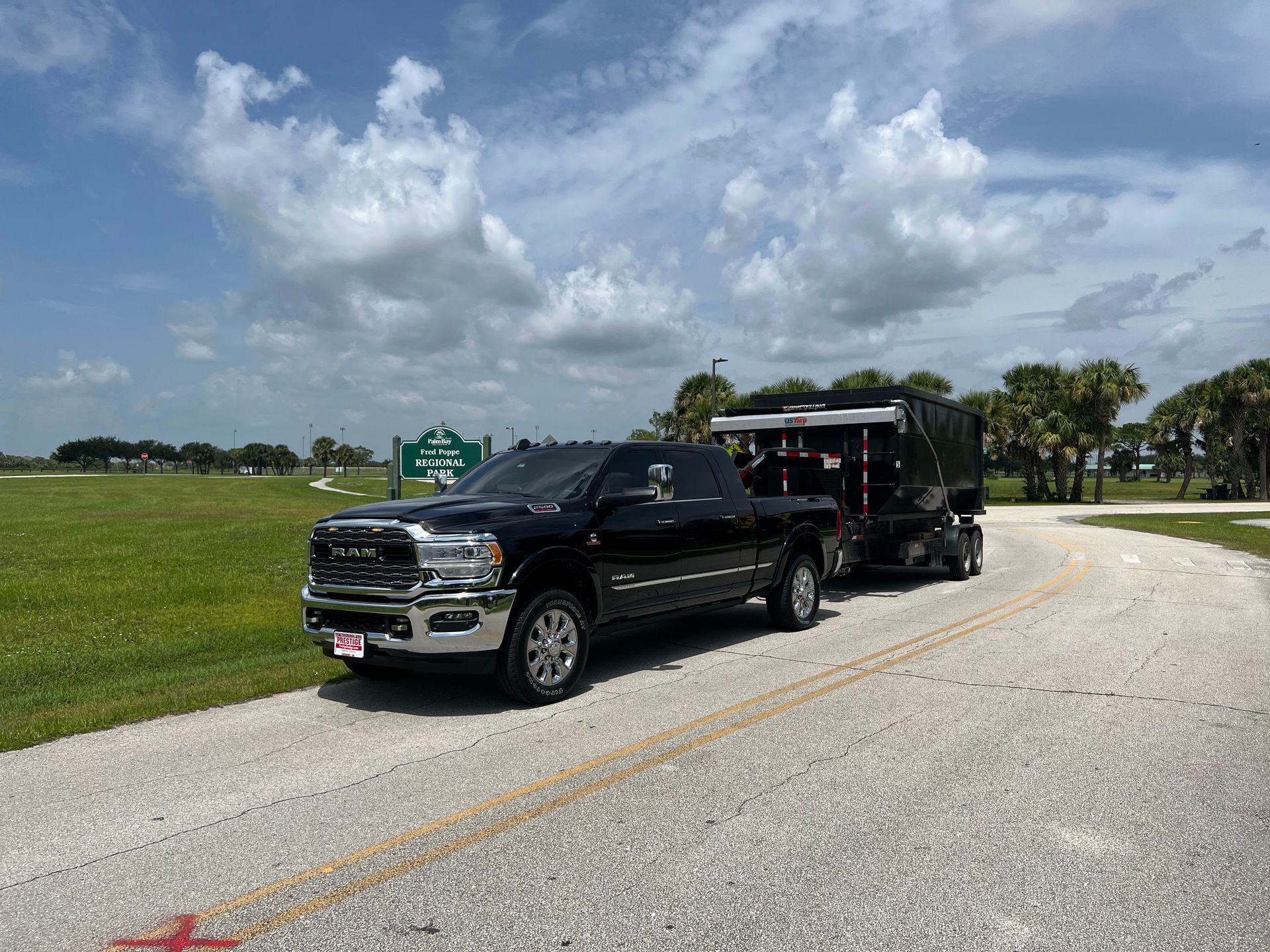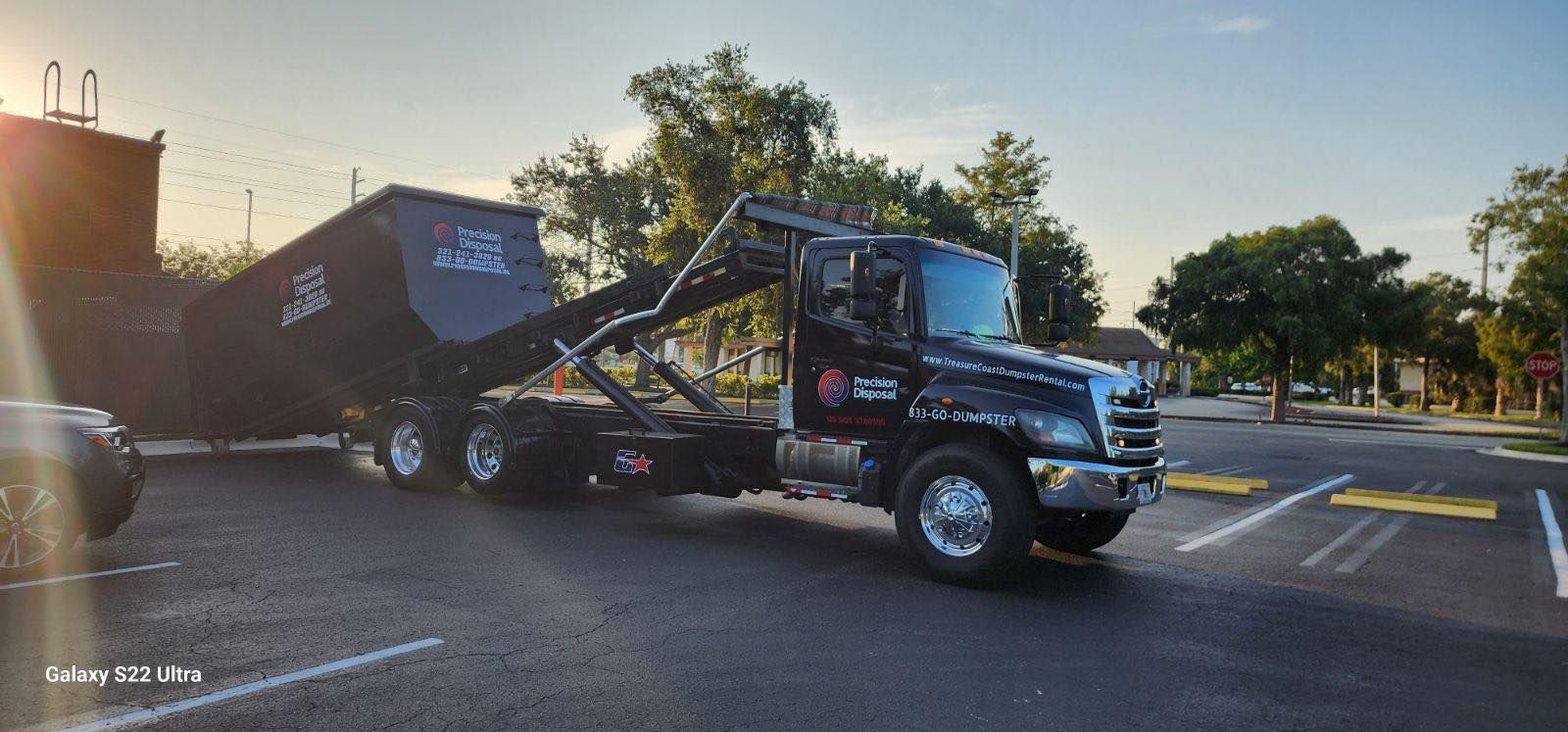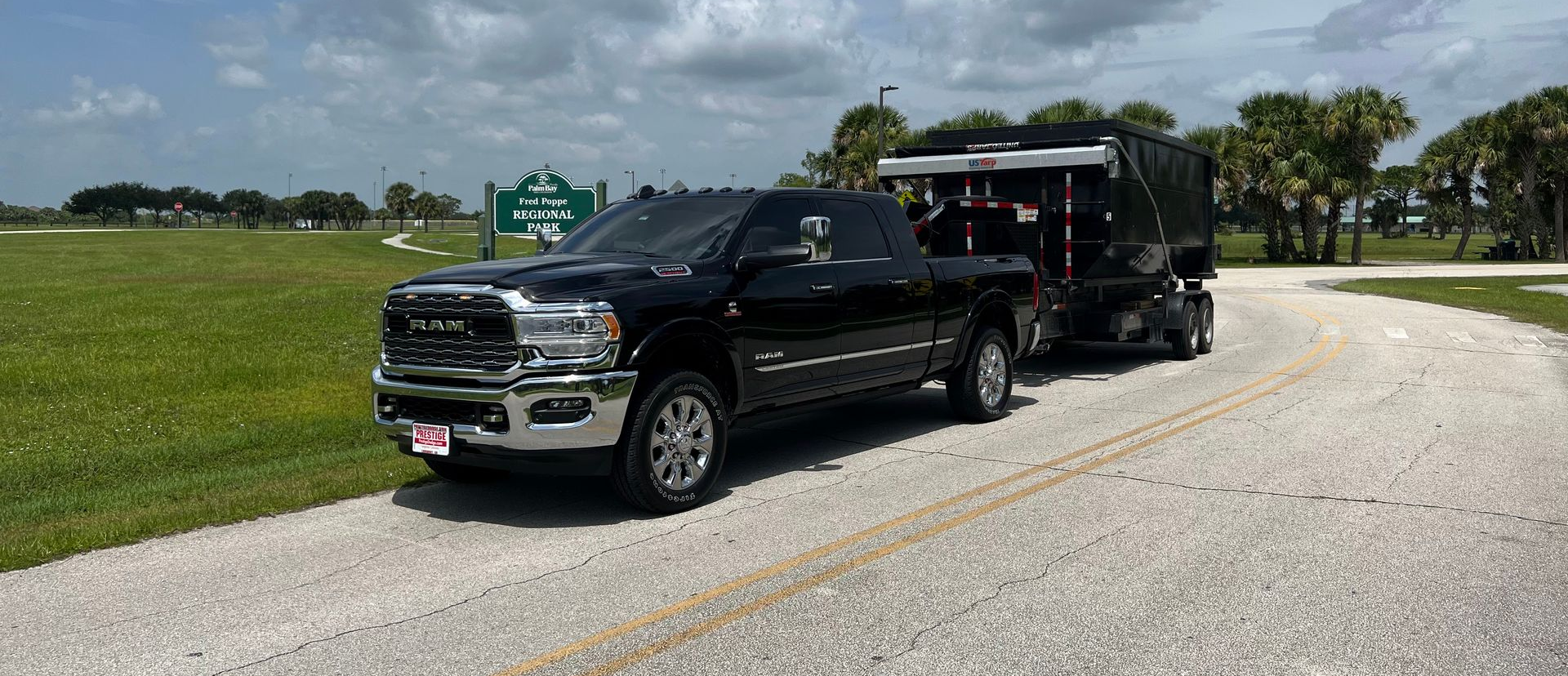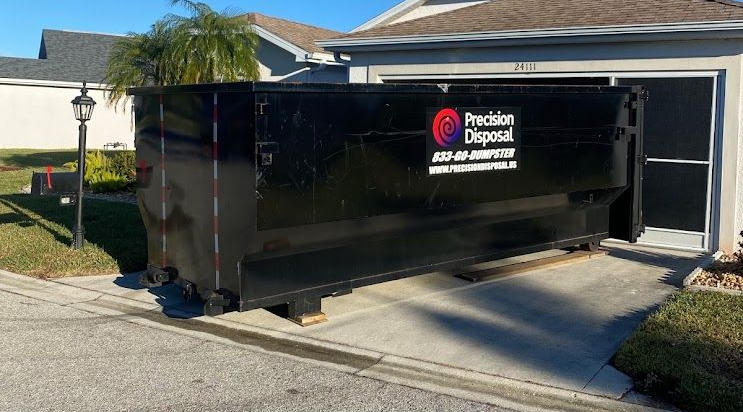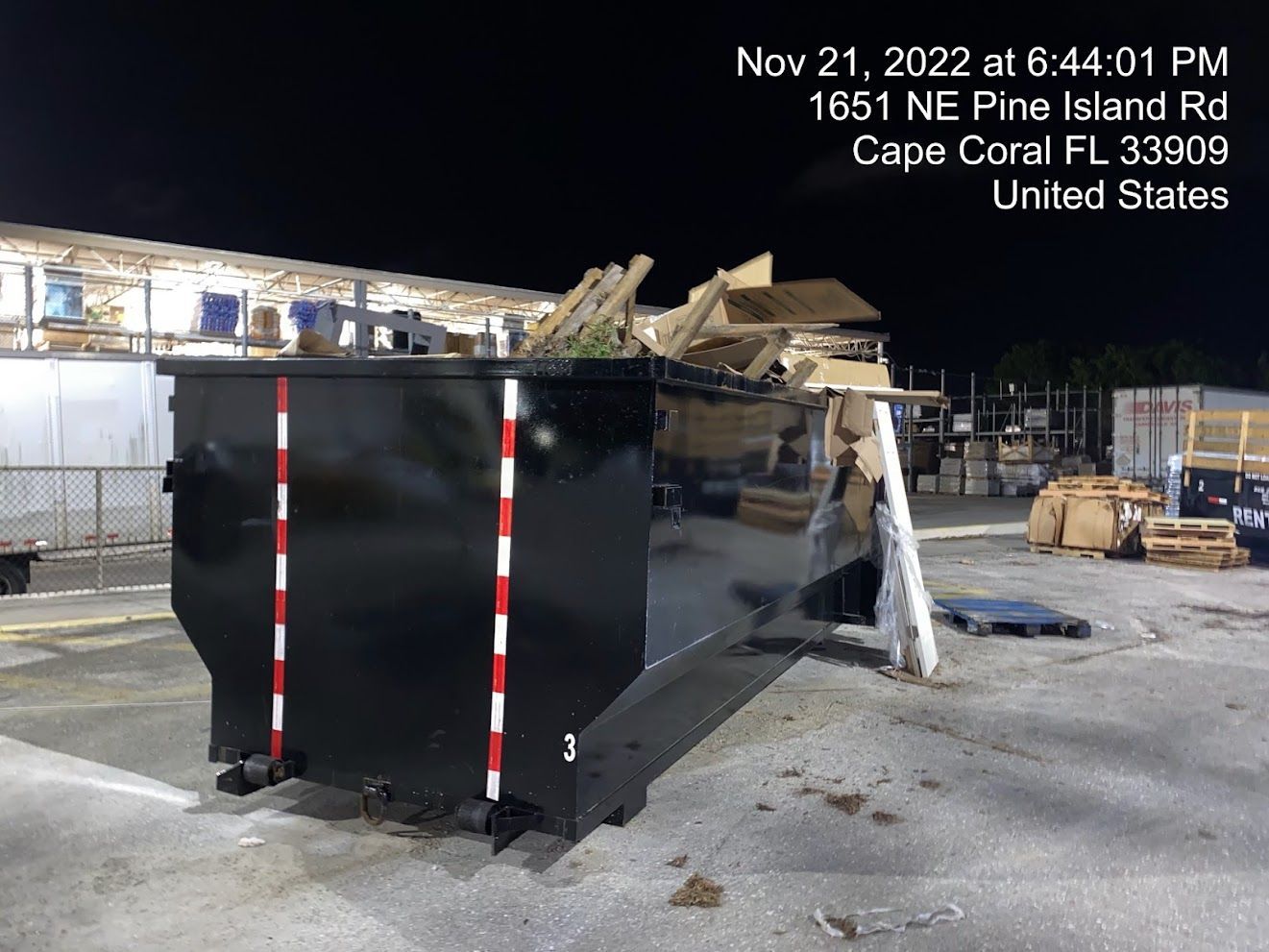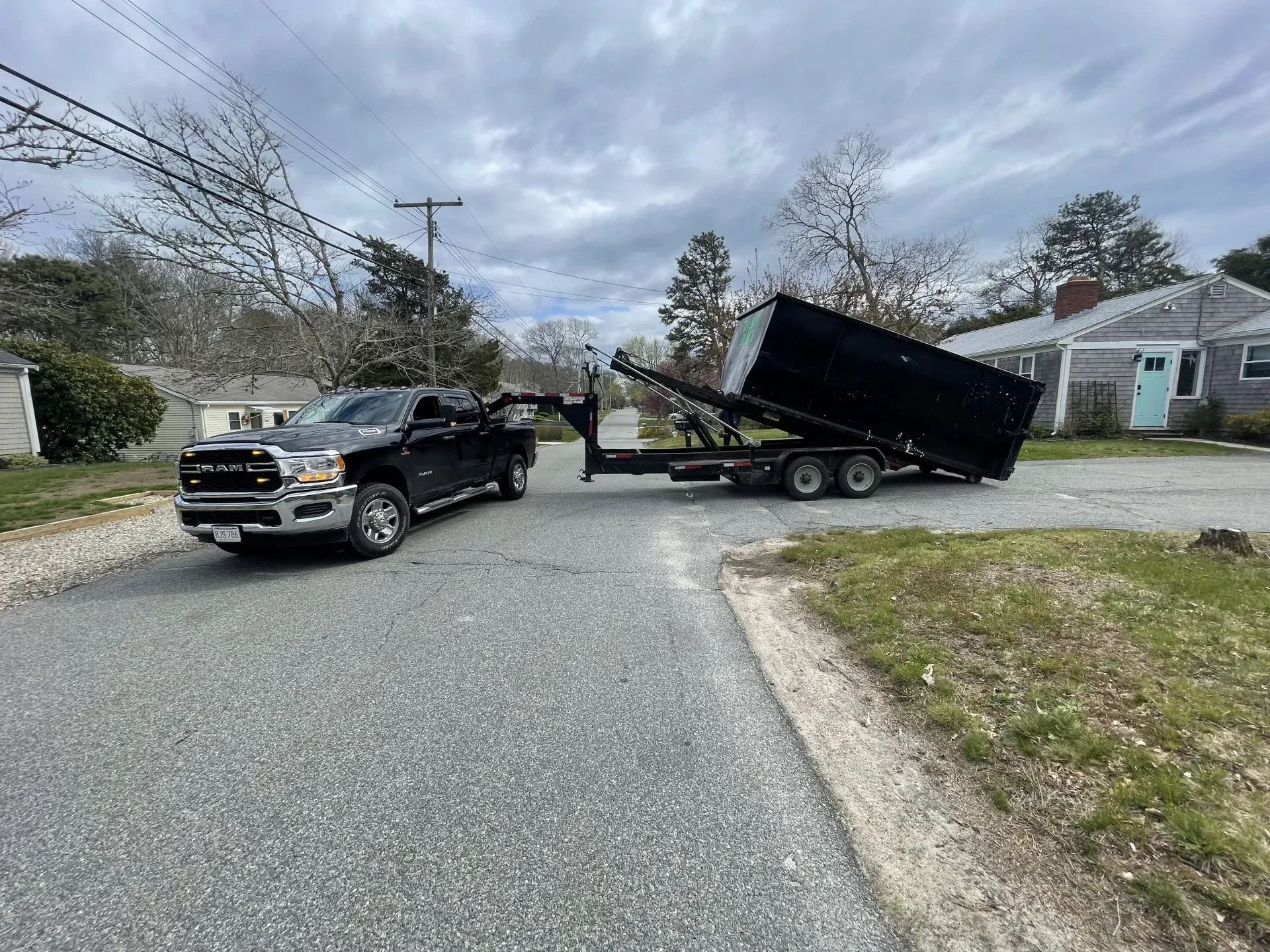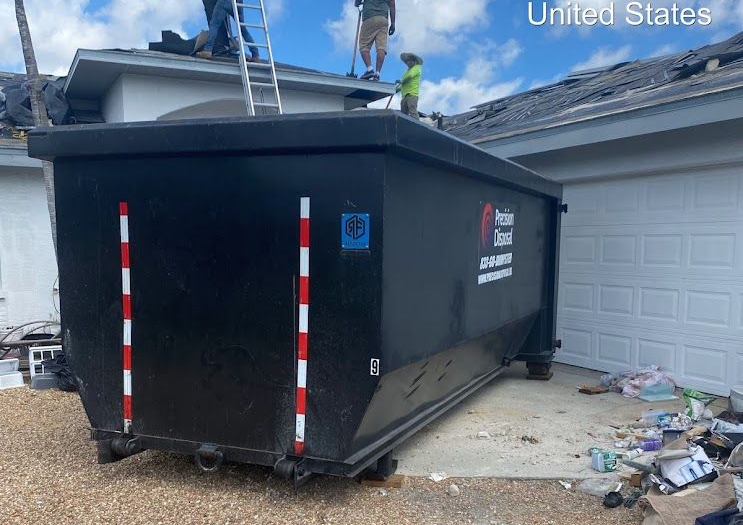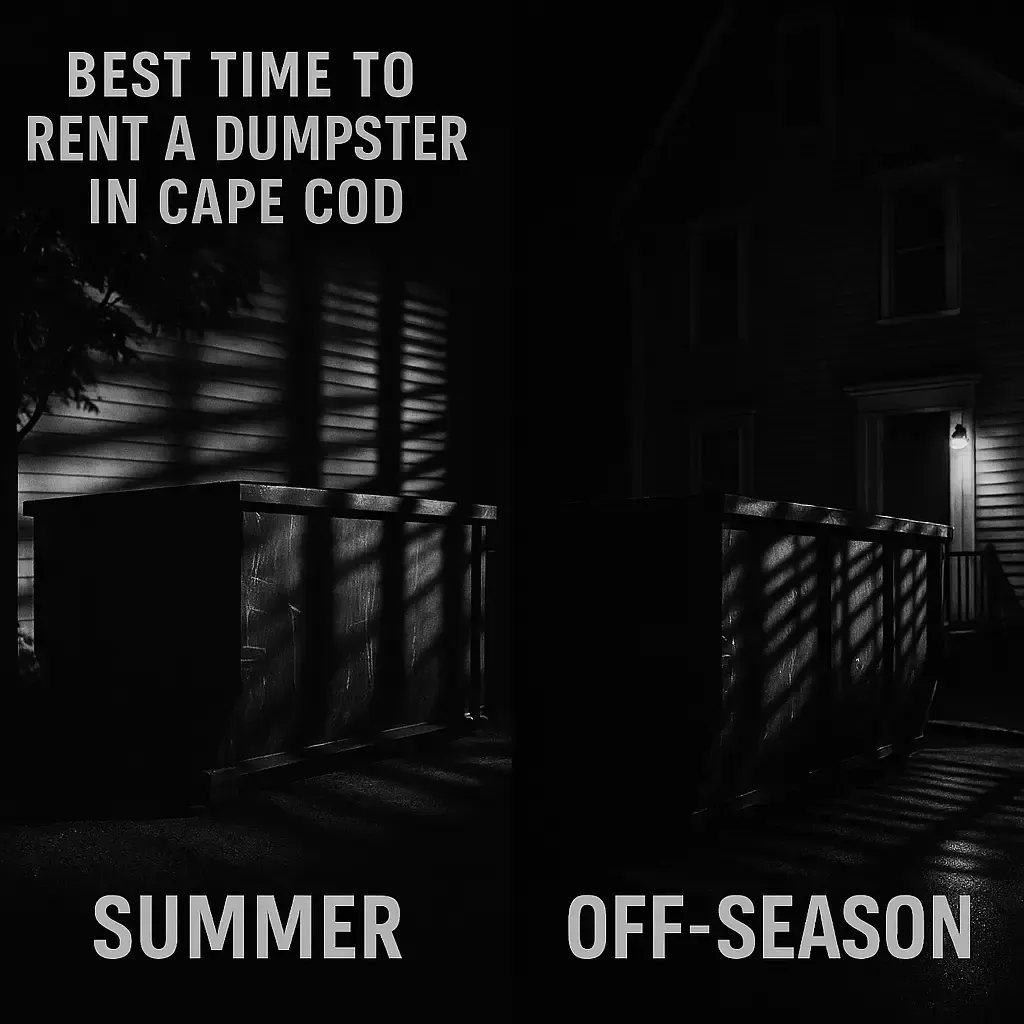Dumpster Rental Pricing Explained: Real Costs, Weight Caps & How to Avoid Fees (General Guide + MA/FL/RI Callouts)
We Deal with Dumpsters every day! You May Not, Here's How Pricing Works:
Dumpster pricing looks simple until extra charges show up. Here’s the no-BS version: your total cost is base rate + weight + time + logistics. Control those four, and you control the bill.
What your base rate usually includes
- Delivery & pickup within a standard service zone
- Rental window (commonly 7–14 days)
- Included tonnage tied to the size and material type
- Disposal of a typical load (household junk or mixed C&D)
Sizes most providers carry: 10, 15, 20, 25, and 30-yard. Bigger isn’t always cheaper—dense debris hits weight limits fast.
What changes your price (before you ever load)
- Material class: concrete, dirt, roofing, plaster, and tile weigh far more than cabinets and cardboard.
- Size choice: 10–15 for dense debris; 20–25 for bulky but lighter loads; 30 only for very light/bulky cleanouts.
- Distance & access: long driveways, narrow streets, low wires/trees, or soft ground can add time and trip risk.
- Timeframe: rush jobs, after-hours set/pick, or multiple swaps in a day may carry premiums.
- Permits/HOA rules: street placement often needs a ROW permit; HOAs can require proof of insurance or set/pick windows.
The fees everyone wants to avoid (and how)
- Overweight: You exceeded included tons or legal axle limits.
Avoid it: choose the smallest can that safely fits dense debris (10 or 15), keep loads flat and below the rail, schedule a swap when you’re close. - Overfilled: Debris above the rails or sticking out.
Avoid it: stop at the rail; if a tarp can’t lie flat, it won’t haul. - Contamination/restricted items: liquids, fuels, batteries, propane tanks, mercury bulbs, tires, refrigerant-charged appliances.
Avoid it: stage these aside for HHW/e-waste programs. - Trip/relocation/wait time: blocked access, soft ground, cars in the approach, or needing the can shifted after set.
Avoid it: clear a 60–80 ft approach, lay plywood on pavers/soft spots, mark the exact drop zone. - Extra days: keeping the can beyond the included rental window.
Avoid it: book realistic windows and call for pickup when you’re done.
Tonnage Rates: What to expect
Short version: Your bill swings on what each state charges to dump a ton, how strict the local bans/surcharges are, and whether your hauler pro-rates overages or rounds up. If you own in multiple states (MA/FL/RI), assume the same load can cost very different amounts.
Why the same debris costs different amounts
- Disposal economics vary by state/county. Transfer stations and landfills set their own tip fees; hauling distance and traffic add overhead. New England sites often run tighter (more diversion rules, more enforcement), while many FL counties run lower base tip fees but have storm-season spikes and capacity constraints.
- Material bans & contamination surcharges. Mattresses, electronics, certain construction debris mixes, and “universal waste” (batteries/mercury) trigger fees in MA/RI more often; FL sees seasonal surcharges when storm debris floods the system.
- Operating conditions. MA/RI winters (plows, ice) and FL rainy/hurricane seasons (soft ground, water weight) both impact turnaround times and costs.
Minimums, included tons, and overage math (don’t skip this)
- Included tons ≠ minimum charge in every market. Some quotes include, say, “X tons included,” but still bill a minimum even if you dump less. Confirm whether the included tonnage is an allowance or a minimum.
- Pro-rated vs. rounded overages.
- Pro-rated: You’re charged on the actual scale ticket (to the pound) beyond your included tons.
- Rounded: Some haulers round up to the next ¼-ton, ½-ton, or full ton. That “tiny” extra weight becomes real money. Insist on pro-rated overages.
- Scale tickets matter. Ask for the inbound/outbound certified scale ticket (tare + gross). No ticket = no proof.
State callouts you should expect
Massachusetts (MA)
- More diversion rules = more ways to trigger contamination surcharges (mattresses, certain e-waste).
- Older housing stock = denser debris (plaster/lathe, chimney brick). Choose 10–15 yd and plan swaps to avoid overweight.
- Winter operations can add delays and failed pickups if access isn’t cleared.
Florida (FL)
- Many markets have lower base tip fees, but storm season can push demand, queues, and surcharges up.
- Water weight is a real cost. Afternoon storms saturate drywall/yard waste. Tarp nightly or you literally pay to dump water.
- Heavy materials (tile, concrete, landscaping) still belong in 10–15 yd with swaps—big cans invite overweight.
Rhode Island (RI)
- Smaller footprint, more town-run transfer stations with specific bans; contamination gets flagged fast.
- Tight streets/lots favor smaller cans and precise placement—trip/relocation fees are common when access isn’t clear.
How to compare quotes across MA/FL/RI (apples to apples)
Use this verbatim with any provider:
- “What’s the included tonnage by size (10/15/20/25/30), and is that an allowance or a minimum?”
- “How are overages billed—exact pro-rated to the pound from a certified scale ticket, or do you round up?”
- “Send a sample scale ticket so I can see the tare/gross and how you calculate overages.”
- “Any material surcharges I should know about (mattresses, e-waste, tires, tile/concrete as mixed loads)?”
- “Do you have seasonal surcharges (storms/winter) or access fees (narrow streets, long driveways, soft ground)?”
- “What’s the daily rate after the included rental window, and do you pro-rate partial days?”
- “Confirm your swap fee and whether weight resets completely on each swap (it should).”
Tactics that lower your tonnage bill in every state
- Size for density, not volume. Dense debris → 10 or 15 yd, even on big jobs.
- Stage and load smart. Heavy low/center, light in corners; stop at the rail.
- Keep water out. Tarp between workdays; avoid loading soaked material after storms.
- Separate problem items. Mattresses, e-waste, tires, liquids, batteries, propane, mercury bulbs—stage for proper programs to dodge surcharges.
- Ask for the ticket. Certified scale tickets keep everyone honest and ensure pro-rated, not rounded, billing.
One last sanity check before you book
If you split time between MA, FL, and RI, don’t assume last month’s price in one state will match the next. Keep your quote sheet, require pro-rated overages, and verify minimums in writing. That’s how you avoid the “same load, wildly different bill” problem.
How to estimate your total
- Pick size by density, not just project size. (Concrete/tile/roofing → 10–15. Cleanouts → 20–25. Very light/bulky only → consider 30.)
- Plan swaps instead of gambling on overweight.
- Tarp nightly to keep water weight out.
- Run a quick math check:
Total ≈ Base Rate + (Overage Tons × Overage Rate) + Extra Days + Any Trip/Permit Fees.
Real-world scenarios (what smart booking looks like)
- Kitchen & flooring (mixed C&D): Book a 15-yard. Load tile and appliances first, then lighter debris. Tarp if rain is coming. If you reach the rail, swap—don’t heap.
- Roof tear-off (one layer asphalt): Book a 10 or 15-yard and schedule a midday swap. Keep shingles low/centered; don’t mix furniture to “use space.”
- Estate cleanout (mostly furniture/cardboard): Book a 20 or 25-yard. Break down furniture and boxes to avoid overfilling the top foot.
Booking checklist (copy/paste for the crew)
- Materials listed and sorted by dense vs. light
- Size chosen for density first (10/15 for heavy; 20/25 for bulky; 30 for very light)
- Swap penciled in if heavy materials are >30–40% of the load
- Drop zone marked; 60–80 ft of straight approach; 10–12 ft overhead clearance
- Plywood down on pavers/soft ground; tarp ready
- HHW/e-waste items staged separately
- Pickup scheduled before the rental window ends

